october, 2020

Event Details
Biology & Paleo Environment Seminars, Lamont Doherty Earth Observatory
more
Event Details
Biology & Paleo Environment Seminars,
Lamont Doherty Earth Observatory
Kristina Douglass Joyce and Doug Sherwin Early Career Professor in the Rock Ethics Institute Assistant Professor of Anthropology and African Studies, Pennsylvania State University
Integrative and inclusive approaches to investigating human-environment dynamics in southwest Madagascar
Monday, October 26th 2020
1pm EDT
FOR ZOOM LINK, PLEASE CONTACT: kailani.acosta@columbia.edu
Abstract: Madagascar figures prominently in debates over contemporary and past human exploitation of island biomes. It has long been argued that initial human arrival on Madagascar precipitated catastrophic changes in local ecologies, including, famously, the extinction of a suite of megafauna. Despite this starkly portrayed shift from an uninhabited island to one devastated by human settlement, our diachronic understanding of Madagascar’s coupled human-natural systems remains limited. For example, despite intense debate over the anthropogenic drivers of faunal extinctions, little work has attempted to provide fine-grained and holistic datasets on natural resource use by Malagasy communities through time. The result is a dramatic narrative of the devastating onset of Madagascar’s Anthropocene, devoid of an understanding of the lives and ecological entanglements of its people. On Madagascar today, a lot of attention is paid to the critical losses of biodiversity observed island-wide. Limited attention, however, is given to rapid losses of traditional knowledge, particularly related to landscape and ecology. This dichotomy presents a challenge for long-term preservation of Madagascar’s human and other biotic communities, but also highlights the opportunity to investigate the intertwined nature of peoples and environment through close collaboration with local, indigenous, and descendent Malagasy communities. I propose that environmental archaeologists must make particular efforts to include local, Indigenous, and descendent communities as research collaborators, if we are to more meaningfully investigate past human-environment dynamics and apply archaeological knowledge toward planning a more sustainable and just future.
Time
(Monday) 1:00 pm


